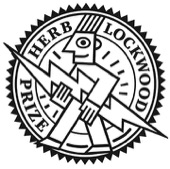Photo by Massimo Schuster
Peter Schumann’s puppet shows began on a neighborhood scale on New York City’s Lower East Side in 1963. The concerns then were rents, rats, and a police force that was more threatening than protecting. Puppetry offered a way to broach these subjects with grace and humor. Offering tasty sour dough rye bread to the audience didn’t hurt either. The symbolism of bread, in a culture starved for meaning, is obvious. And delicious. And thus, Bread and Puppet was born.
In 1970, Peter Schumann moved Bread and Puppet to Vermont, eventually landing in the town of Glover. A piece of farmland there has served as the troupe’s home base ever since. Glover was the birthplace of Our Domestic Resurrection Circus. This two-day event became a summer ritual for thousands of Vermonters. The circus incorporated political skits, concerts and a touch of vaudeville.
Over time, Bread and Puppet’s shows have grown in scale and complexity. The papier-mâché puppets have gotten larger, eventually towering over their audiences. The shows have also incorporated more and more volunteers, thrilled at the chance of taking part. Under Peter Schumann’s tutelage, many hundreds of young people have been trained in the arts of puppetry, dance, and theater.
As the productions grew, so did the scale of the issues they addressed. One notable example was described by journalist Holland Cotter in the New York Times (Aug 5, 2007):
… In 1982, Bread and Puppet led a nuclear freeze parade in New York City during the United Nations sessions on disarmament. Mr. Schumann brought some 250 masks and puppets from Vermont, rounded up and trained thousands of volunteers, and in just a few days organized one of the most spectacular pieces of public theater the city has ever seen.
Titled “The Fight Against the End of the World,” it was an epic in three stages that included figures with stars for heads, crimson-and-black imps swarming around a figure of death on a skeletal horse, and a tableau of white birds and a blue ark in full sail. In the midst of it, Mr. Schumann himself appeared in a red-white-and-blue Uncle Sam outfit, perched atop sky-high stilts, dancing to a ragtime tune.
Hundreds of thousands of people lined Fifth Avenue, rapt, quietly beaming; many wiped their eyes. They had been given a gift, an image of affirmation on a tremendous scale.
A communitarian and pacifist, Peter Schumann has made a point of addressing a wide range of social and political issues with his puppetry and art. It should come as no surprise that his work is controversial to some and music to others. That’s the nature of the space he occupies. However, there is no denying that his work serves as a catalyst for conversation. And isn’t that one of the critical functions of art and literature?
It is with great honor that we present the 2018 Herb Lockwood Prize to a true Vermont treasure.
2018 Winner
Peter Schumann


